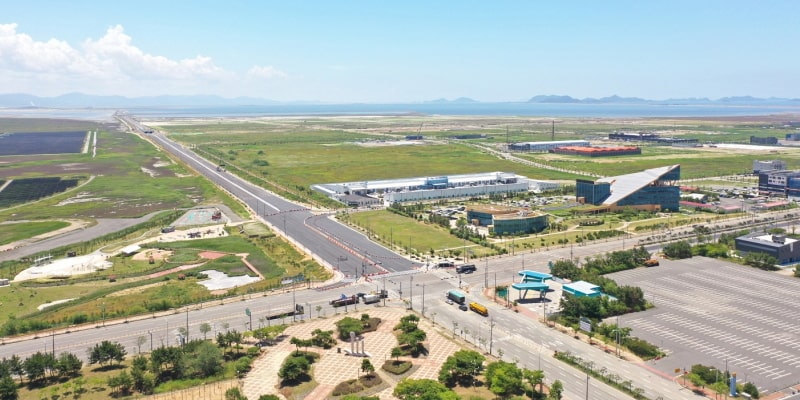LG Chem and Huayou plan several battery material factories
The South Korean chemical company LG Chem has agreed on an extensive cooperation with the Chinese Huayou Group to enter the LFP cathode materials business. The companies are planning a total of four joint plants, two in Morocco and two in Indonesia. However, this is still a memorandum of understanding, so a binding contract has yet to be signed.
But the plans for the joint ventures are clear: a factory for LFP cathode materials with an annual capacity of 50,000 tonnes is to go into operation in Morocco in 2026. The materials produced there are to be supplied to North America and subsidised by the US government under the Inflation Reduction Act (IRA). Morocco has a free trade agreement with the US. Details of the joint venture are not yet known, but the South Koreans are likely to hold a majority stake for strategic reasons. “LG Chem and Youshan (a Huayou subsidiary, ed.) are to adjust its share in compliance with the regulations of the Foreign Entity of Concern (FEOC) regulations of the IRA.,” the notice says. If the Chinese had the majority, this would not be welcome in the USA.
LG Chem also plans to offer LMFP materials
LG Chem and Huayou are also planning a lithium conversion plant in Morocco that will produce 52,000 tonnes of battery-grade lithium annually from 2025 and supply it to the LFP plant. The companies emphasise in the announcement that the aim is to improve the vertical integration of LG’s cathode supply chain.
The LFP projects in Morocco are the first lithium iron phosphate projects for LG Chem, but the company sees “soaring demand for LFP cathode materials, which is gaining popularity due to their price competitiveness over nickel-cobalt-manganese (NCM) cathodes”. In addition, LG Chem plans to expand its business in the future to LMFP cathode materials, i.e. with additionally added manganese. This should improve the energy content and performance compared to pure LFP materials.
In addition to the plants in Morocco, LG Chem and Huayou Cobalt have agreed to cooperate in Indonesia. This involves a highpressure acid leaching (HPAL) plant and a precursor plant for cathode materials with a production capacity of 50,000 tonnes per year.





0 Comments